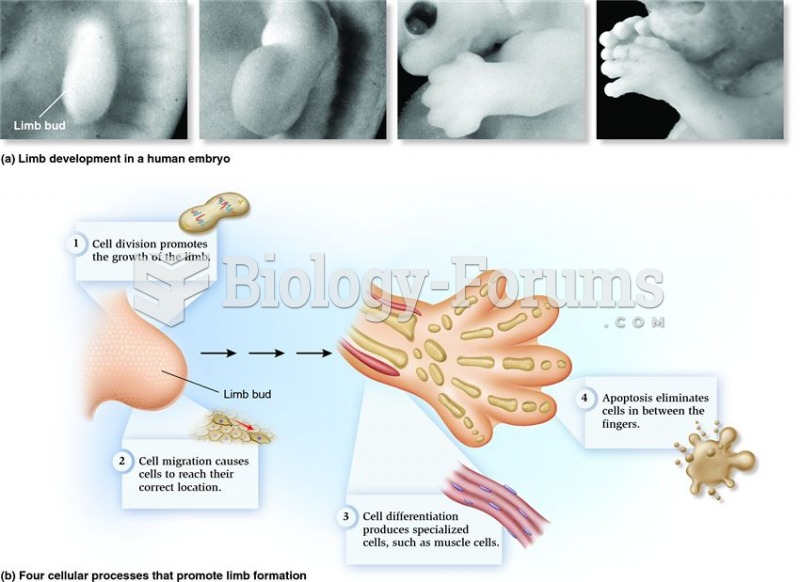|
|
|
The first oncogene was discovered in 1970 and was termed SRC (pronounced "SARK").
Over time, chronic hepatitis B virus and hepatitis C virus infections can progress to advanced liver disease, liver failure, and hepatocellular carcinoma. Unlike other forms, more than 80% of hepatitis C infections become chronic and lead to liver disease. When combined with hepatitis B, hepatitis C now accounts for 75% percent of all cases of liver disease around the world. Liver failure caused by hepatitis C is now leading cause of liver transplants in the United States.
Patients who have been on total parenteral nutrition for more than a few days may need to have foods gradually reintroduced to give the digestive tract time to start working again.
Cytomegalovirus affects nearly the same amount of newborns every year as Down syndrome.
Your heart beats over 36 million times a year.
 Mutualisms, such as those that occur among plants and pollinators, generally involve large numbers o
Mutualisms, such as those that occur among plants and pollinators, generally involve large numbers o
 Growth cones. The cytoplasmic fingers (the filopodia) of growth cones seem to grope for the correct ...
Growth cones. The cytoplasmic fingers (the filopodia) of growth cones seem to grope for the correct ...





